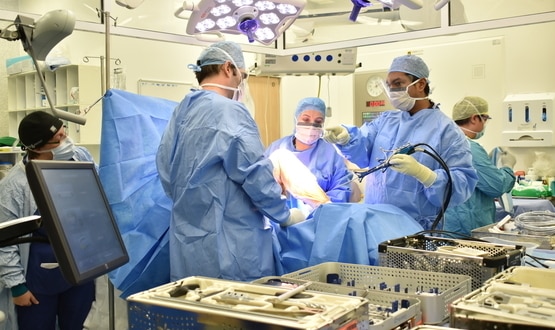Chelsea and Westminster Hospital NHS Foundation Trust has carried out its first robotic-assisted total knee replacement operation.
The new surgical technique involves a small robotic mechanism which improves the precision of the placement of the knee implants, with minimal incision required.
Traditional methods require large cuts to be made around a patient’s knee to allow the use of the equipment required to perform the work.
In comparison, the use of robotics helps to speed up recovery times, reduces post-operative pain and increases the longevity of the implants.
Dr Arjuna Imbuldeniya, a trauma and orthopaedic surgeon at the trust, performed the successful operation on 21 February on 77-year-old David Patterson at West Middlesex University Hospital.
It’s one of the first times that the technology has been available in the NHS.
Dr Imbuldeniya said: “When I first qualified as a surgeon, patients typically took a week to a week and a half to get back on their feet after having a knee replacement.
“This has come down to just few days recently, and the robotic technology will help patients get home even faster – as soon as a day or two after the operation.
“Another key benefit is that by being so precise with a knee replacement, it will last much longer and can be tailored to the unique anatomy of each patient.
“This is so important now as we see younger and younger people requiring this procedure.”
Chelsea and Westminster is not the only NHS trust to experiment with the use of robotics in surgery.
In January, robot-assisted surgery entered use at Barts Health NHS trust after receiving multi-million pound funding.


13 March 2018 @ 15:50
I Am not quite ready I have to do something about my knees both thank you for the new technology we getting there slowly